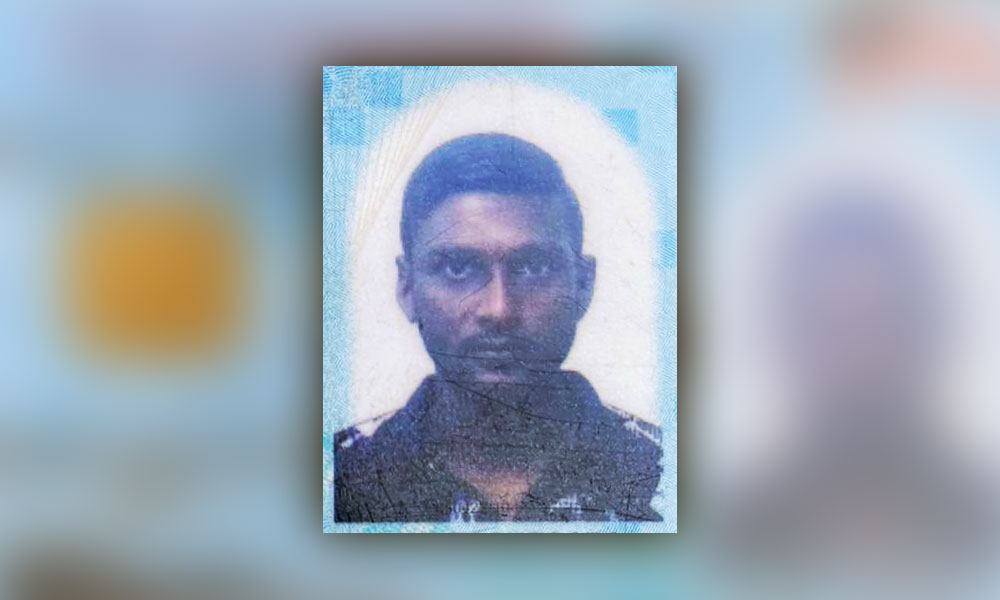Rights group Eliminating Deaths & Abuse In Custody Together (Edict) has called on the government to strengthen the Coroner's Court and to enact a new Coroner's Court Act.
Edict, in a statement, said this is because, in court, there would be no element of politics and discrimination for death in custody cases.
"History has proven so many court decisions are in favour of the family after going through the proper and due process.
"Any dissatisfaction with the decision of a court can be taken to a higher court," said Edict in the statement with proposals to address custodial deaths, following a recent series of new cases in police and prison custody.
Edict said an inquest would be the most transparent process to establish the cause of death and responsible parties, providing an opportunity to dispute and challenge any evidence or allegations made by relevant authorities.
"Justice is for both sides. As activists and lawyers who adhere to the principle of rule of law, it is inappropriate to be prejudice and bias before an investigation is conducted," said Edict.
It also called for strict compliance to provisions of the Criminal Procedure Code and for death inquiries to be completed within six months of such cases occurring.
"There should be an inquest conducted for every custodial death case.
"This would include cases occurring in Immigration detention centres," it said.
Section 334 of the CPC states that when any person dies in the custody of the police, psychiatric hospital or prison, the authorities in charge shall immediately notify the nearest magistrate, for consideration on whether an inquiry into the cause of death should be held.
Should the magistrate decide that there is no need for an inquest, the decision and reasons must be presented to a public prosecutor, who under Section 339 of the CPC has powers to "...at any time direct a magistrate to hold an inquiry…"
"For the time being, the police investigations into such cases should be done by a special forensics team in the police force in compliance with existing laws.
"This special unit should be independent of the police station concerned with the death," Edict said, adding that ideally it should be based in Bukit Aman and headed by an officer whose integrity and independence would not be questioned.
Edict also pointed out that the often-proposed Independent Police Complaints of Misconduct Commission (IPCMC) is not a mechanism for making inquiries into custodial deaths as its function would only begin after an inquest has determined there was an element of police misconduct that led to a death in custody.

'Coroners must be independent'
Separately, rights group Malaysians Against Death Penalty and Torture (Madpet) spokesperson Charles Hector Fernandez said it is time that all members of the judicial service, which will also include coroners, who usually are magistrates, be placed directly under the judiciary instead of the current Judicial and Legal Services Commission.
He said the move will result in greater independence and less avoidance of an inquest in death in custody cases, death in industrial accidents and other deaths.
"Alternatively, it may be time for Malaysia to establish an independent body of Coroners, as is the case in the United Kingdom, which have also the Coroners and Justice Act 2009.
"Magistrates already burdened with their caseload may simply have insufficient time to focus on Coroner’s responsibilities," said the human rights lawyer.
He said a dedicated Coroner's Court would not only be able to address custodial death cases but also uncover any criminal liabilities linked to medical negligence or road accidents, among others.
Their calls today follow at least three reported custodial deaths over the last 15 days, the latest being that of 36-year-old lorry driver Umar Faruq Abdullah @ Hemanathan’s at the south Klang district police headquarters.
Umar's death follows the recent deaths in custody of A Ganapathy on April 18 and S Sivabalan on May 20 who were both detained in the Gombak police station. It also follows the passing of S Surendran on May 27. He was detained in Selangor but later placed in Simpang Renggam prison in Johor.
In all three cases, their family members had raised allegations of abuse or discrepancies in official reports of the deaths. - Mkini




No comments:
Post a Comment
Note: Only a member of this blog may post a comment.